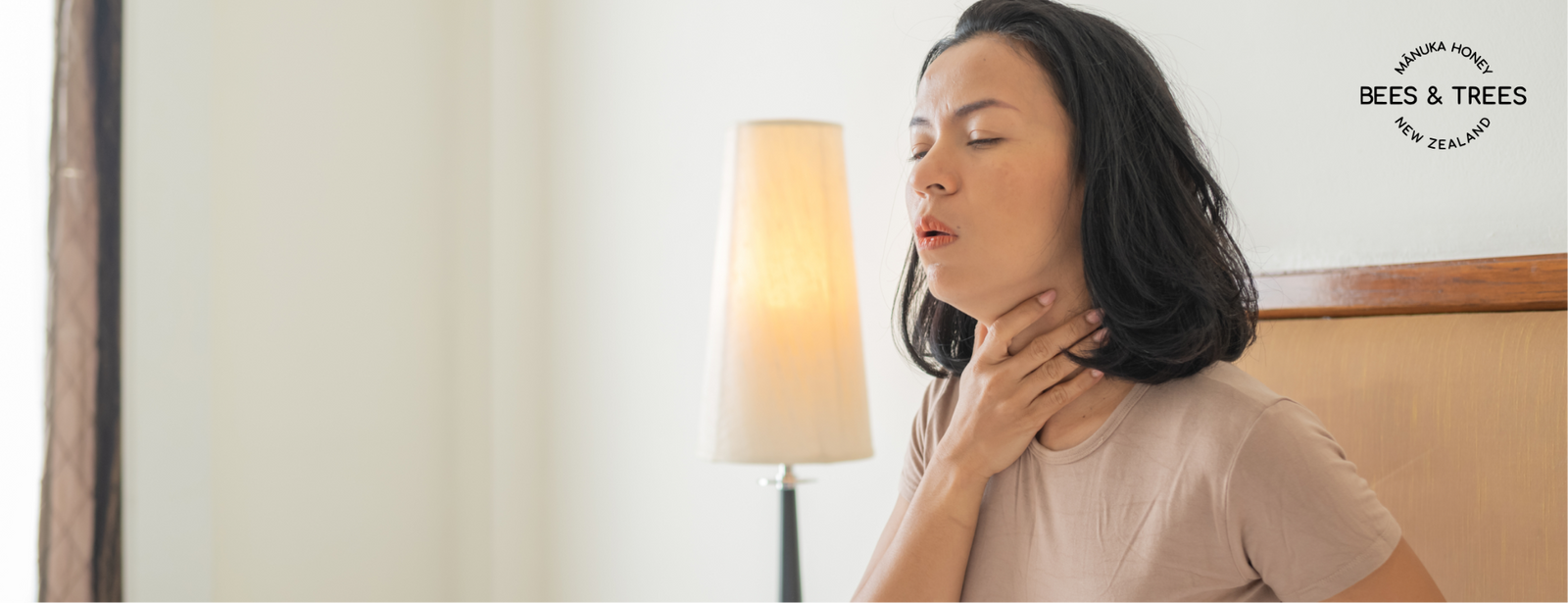If you've ever come across a bee swarm and been curious or concerned, you're not the only one. We're here to help you understand and appreciate what's really happening, so the phenomenon becomes a lot more clear and a lot less intimidating.
What is a Bee Swarm?
A bee swarm is a fascinating natural event in the life cycle of honey bees. It occurs when a queen bee, accompanied by thousands of worker bees, decides to leave its current colony to establish a new one. This process is vital for reproduction and species expansion, allowing bees to distribute themselves more widely and create new colonies.
When Do Bees Swarm?
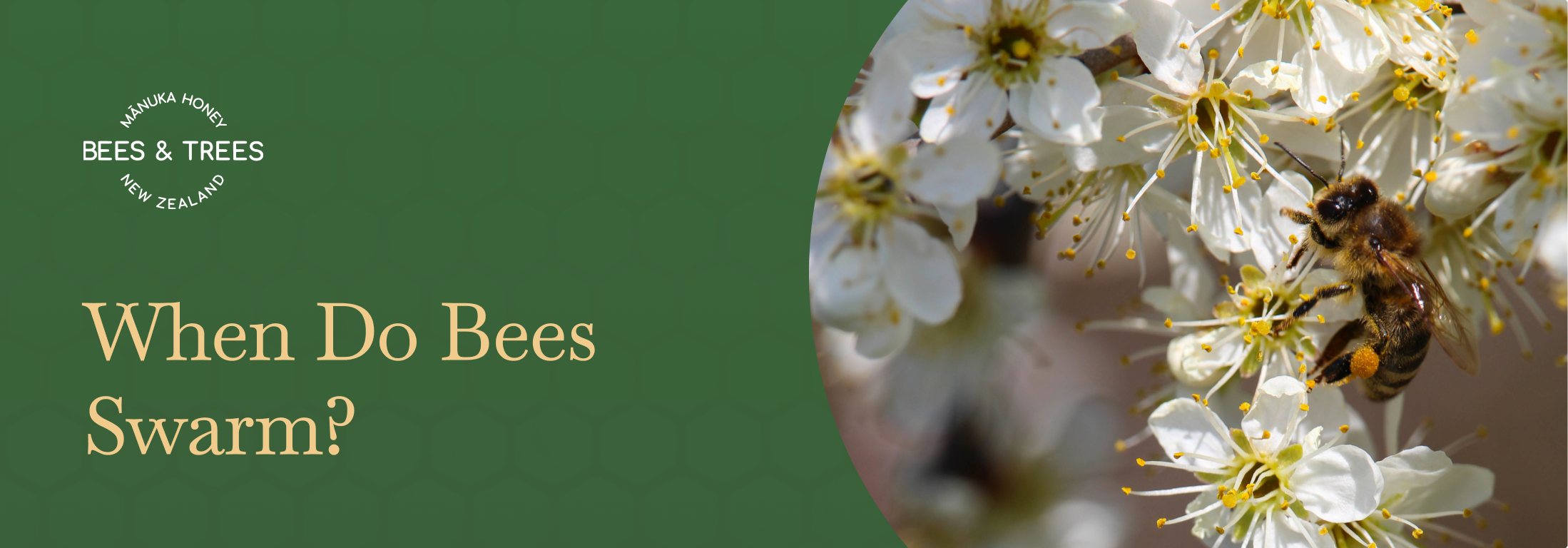
Bees typically swarm in the spring, a period that coincides with rapid population growth within the hive and an abundance of flowering plants providing ample food sources. This seasonal timing is critical as it allows the newly formed swarm to establish a new colony, gather resources, and strengthen in numbers before the onset of winter.
Why Do Bees Swarm?
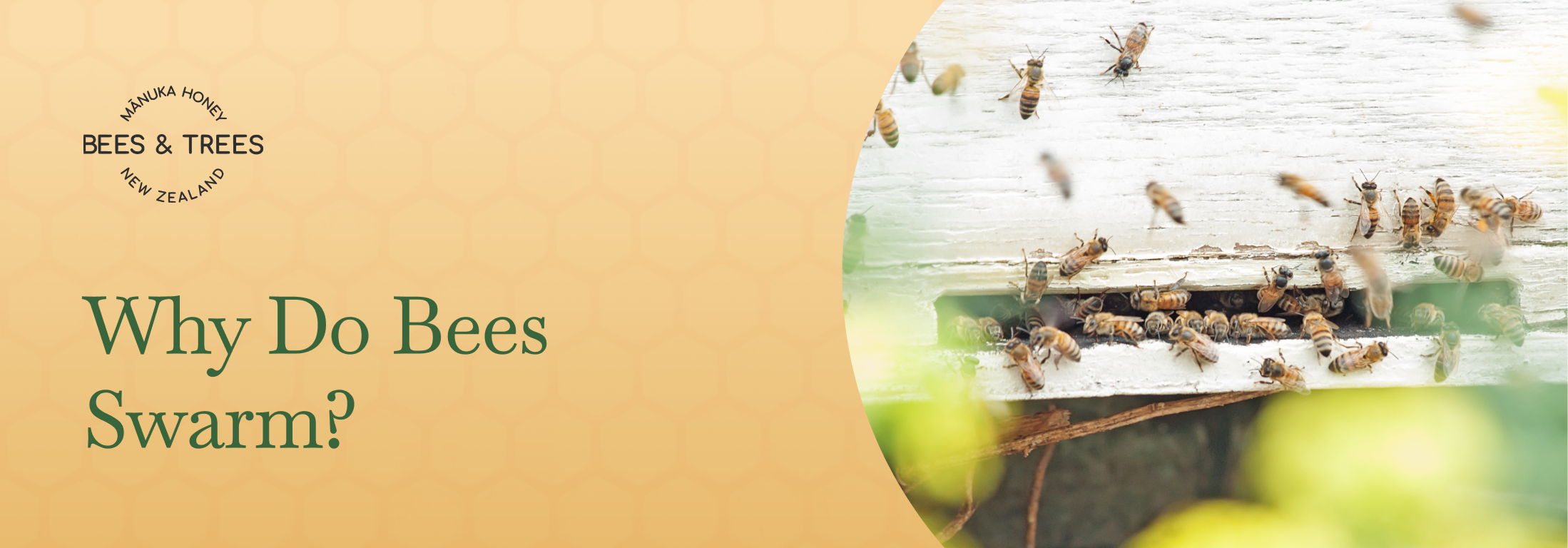
1. Overcrowding
The primary reason for swarming is overcrowding in the hive. Overcrowding occurs when the hive's population increases, usually in the spring, resulting in little space for honey storage, pollen, and brood rearing. This situation disrupts hive operations and dilutes the queen's pheromones, which are essential for controlling colony behavior and maintaining order. When these pheromones are less effective, it signals the need for the colony to split.
2. Temperature Regulation
Temperature regulation also plays a crucial role in swarming. A densely populated hive produces more body heat, raising the internal temperature. Although bees can manage their hive's climate, extreme warmth, especially under conditions of high external temperatures and humidity, can lead bees to decide to swarm. This move is a natural response to avoid overheating and maintain an optimal living environment.
Recognizing these swarming triggers helps us appreciate bees' intricate behaviors and their essential role in our ecosystem.
The Swarming Process
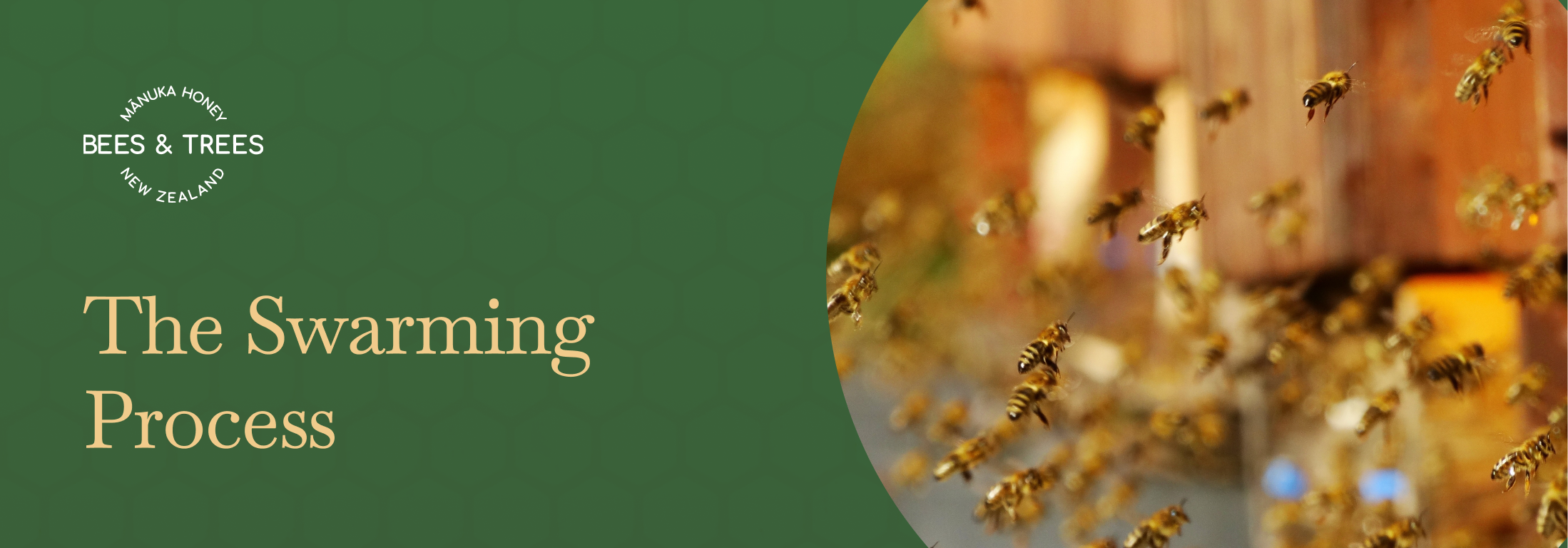
The swarming process of honey bees is a meticulously organized event that unfolds in three distinct stages, ensuring the successful establishment of a new colony.
Stage 1: Preparation for Swarming
The preparation for swarming begins inside the original hive, where worker bees detect the signs of overcrowding and decide it's time to create a new home. This stage involves the construction of several new queen cells, in which the existing queen lays eggs to foster successors. Worker bees also start to deprive the old queen of food, making her lighter and able to fly.
Additionally, the worker bees gorge themselves on honey, fueling their journey to a new location. This preparatory phase is crucial for the smooth transition of part of the colony to a new site.
Stage 2: The Swarming Event
The actual swarming event occurs when the old queen and about two-thirds of the worker bees leave the hive en masse. This departure is typically timed for a warm and clear day, enhancing the swarm's travel conditions.
The swarm may travel a short distance before they settle on a temporary location, such as a tree branch, where the queen rests, while scout bees search for a suitable place to establish the new colony. This temporary clustering showcases the swarm's cohesion and the workers' dedication to protecting their queen during this vulnerable phase.
Stage 3: Establishing the New Colony
Once the scout bees have found an ideal new home, they return to the swarm and communicate the location through a waggle dance, after which the swarm makes a collective decision on the new site. Following this consensus, the swarm relocates to the chosen site and begins the work of building a new hive.
Worker bees start constructing comb, while the queen begins laying eggs to populate the new colony. This stage marks the successful completion of the swarming process as the bees adapt to their new environment and resume their roles in supporting the colony's growth and productivity.
Each stage of the swarming process is essential for the propagation and health of honey bee populations, illustrating the complex social behavior and organizational skills of these vital pollinators.
Swarming vs. Absconding
Swarming and absconding, though outwardly similar, stem from different causes and have distinct outcomes for honey bee colonies.
1. Swarming
Swarming is a natural reproductive process that typically occurs in spring and summer and leads to the division of the colony. The old queen departs with a portion of the workers to establish a new colony, while a new queen and the remaining workers continue in the original hive. This behavior is indicative of a healthy and growing bee population.
2. Absconding
Absconding, on the other hand, involves the entire colony leaving the hive, often in response to adverse conditions such as disease, parasites, lack of resources, or environmental stressors. It is a survival mechanism rather than a reproductive strategy, signaling problems within the hive that force the bees to seek a better habitat.
Understanding the difference between swarming and absconding is crucial for beekeeping and bee conservation efforts.
Are Bee Swarms Dangerous?
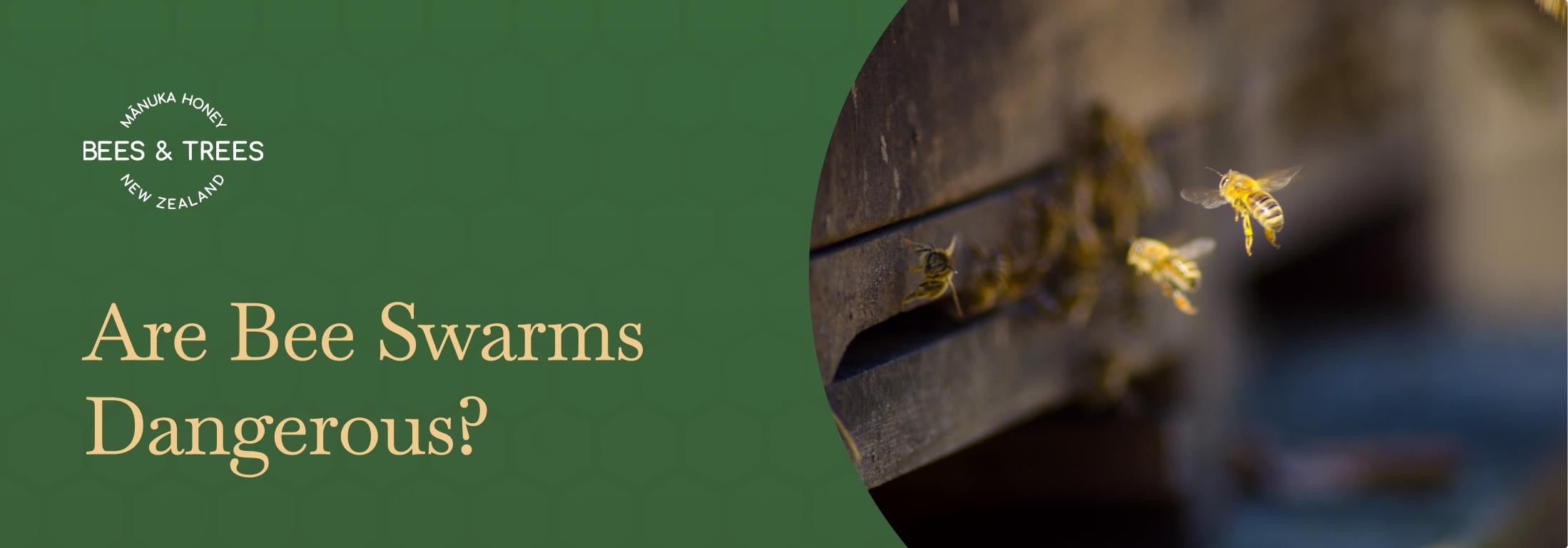
Despite the intimidating appearance of a bee swarm, swarming bees are generally not dangerous. They are focused on finding a new home rather than defending one, making them less likely to sting. Bees in a swarm are also full from consuming honey before departure, which makes them even less inclined to be aggressive.
If you come across a bee swarm in a high-traffic area or one that otherwise presents a challenge, it's best to keep a distance and contact a local beekeeper to safely relocate the swarm. Otherwise, let nature take its course, and the swarm will be gone in a few days.
Prevention and Management of Swarming for Beekeepers
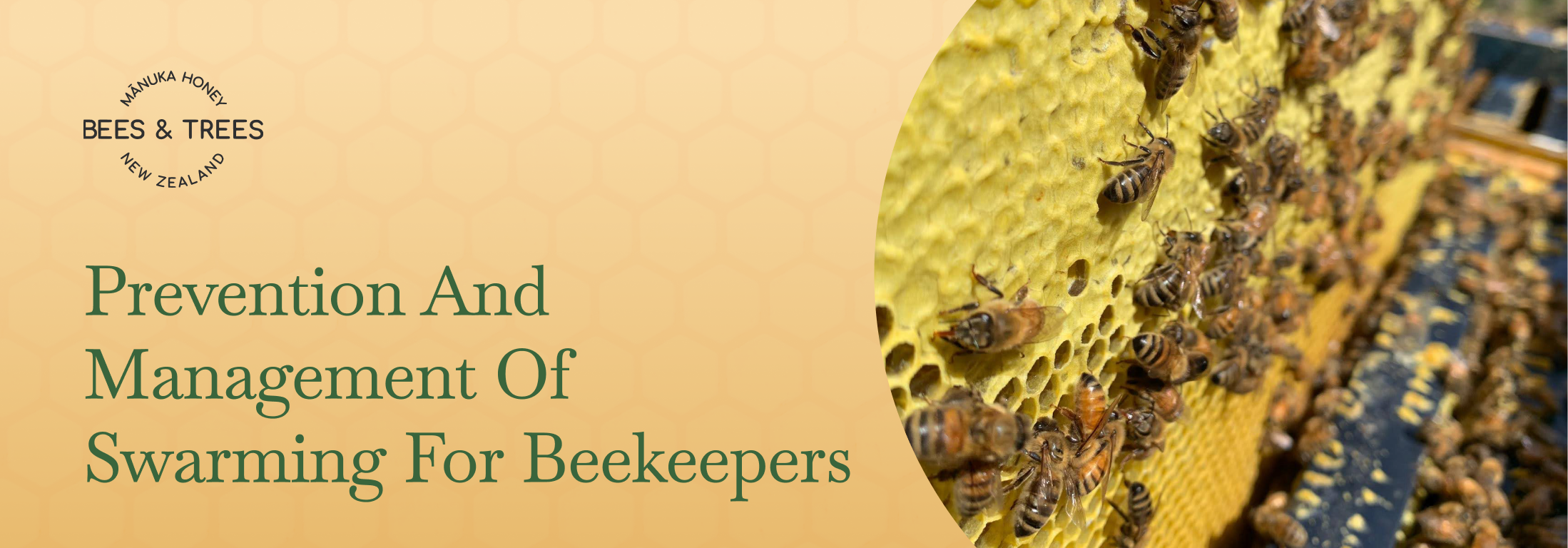
In commercial beekeeping, managing swarms is crucial for maintaining hive strength and optimizing honey output. As spring arrives in October in Taranaki, New Zealand, our beekeepers are particularly attentive to swarm control measures to ensure all hives are prepared for the short Manuka Honey season.
To reduce the bees’ urge to swarm, our beekeepers may transfer frames of brood (bee eggs and larvae) from crowded hives to those with more room. This practice not only prevents swarming but also ensures that each hive can contribute optimally to the production process.
This careful management is essential for the small-batch production of Bees & Trees Manuka honey, allowing it to go from hive to jar without the disruption of swarming.
Conclusion
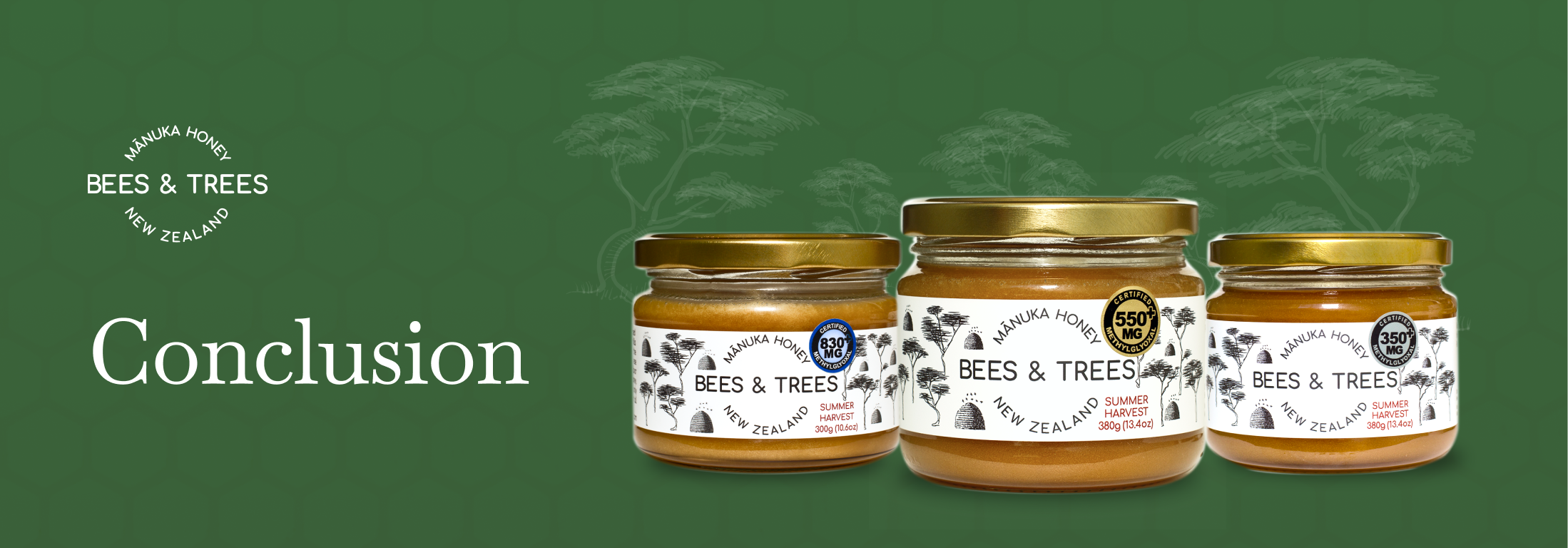
Bee swarming is a natural, essential behavior that indicates a healthy bee colony. Understanding and respecting this process can enhance our appreciation for bees' critical role in ecosystems and agriculture, highlighting their importance in nature's intricate balance.
While understanding the natural behaviors and management of bee swarms is important for ecosystem balance and honey production, exploring the medicinal properties of Manuka honey, especially in research for treating conditions like cystic fibrosis, further highlights the significant role bees play in health science
Frequently Asked Questions
1. What should I do if I encounter a bee swarm?
If you encounter a bee swarm, remain calm and do not attempt to disturb or harm the bees. Contact a local beekeeper who can safely relocate the swarm, or let nature take its course and observe this natural wonder over the next couple of days.
2. What happens to the original colony after a swarm?
After a swarm leaves, the original colony is significantly reduced in size. However, before leaving, the queen lays eggs that will become new queens. Once these queens hatch, they will fight for dominance, with the victor becoming the new queen of the colony.
3. Can a bee swarm be prevented?
Beekeepers can sometimes prevent swarming by managing the space within the hive, splitting colonies before they become overcrowded, or by replacing older queens before they are inclined to swarm. However, swarming is a natural behavior and can not always be prevented.
4. How long does a swarm last?
After leaving the original hive, a swarm may cluster on a tree branch or another object for a few hours to a few days while scout bees search for a new nesting site. Once a suitable location is found, the swarm moves to it and begins to establish a new colony.
5. How can I help protect swarming bees?
If you see a bee swarm, the best way to help is by contacting a local beekeeping association or a professional beekeeper who can safely capture and relocate the swarm. Avoid using pesticides or other harmful substances on or near the swarm.






